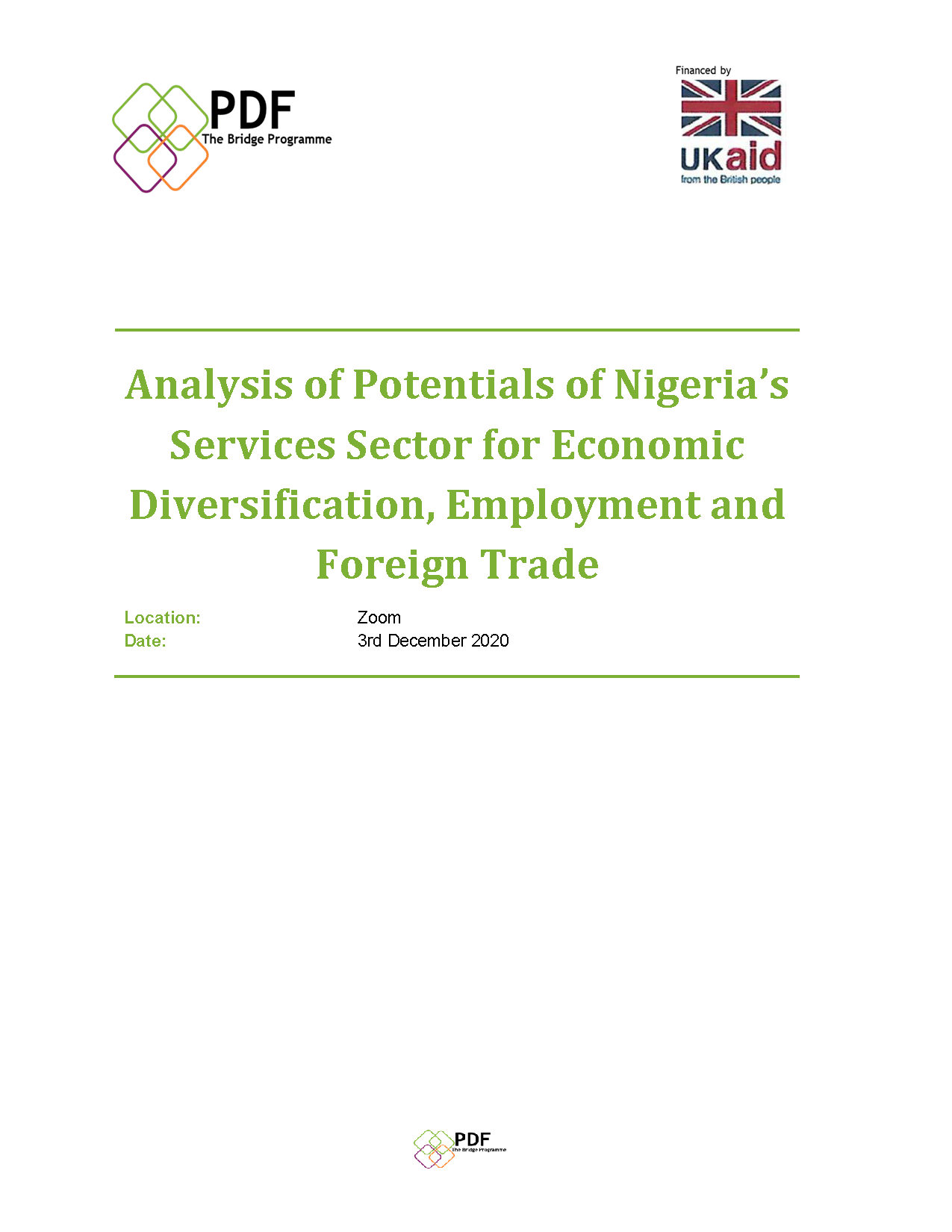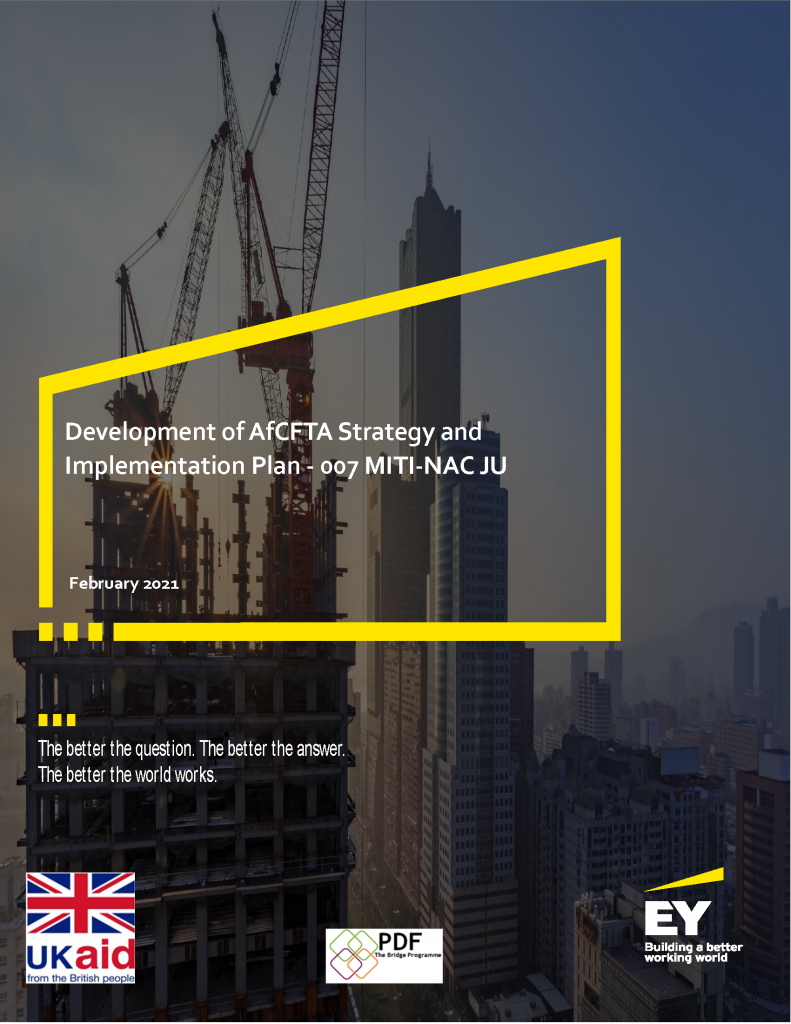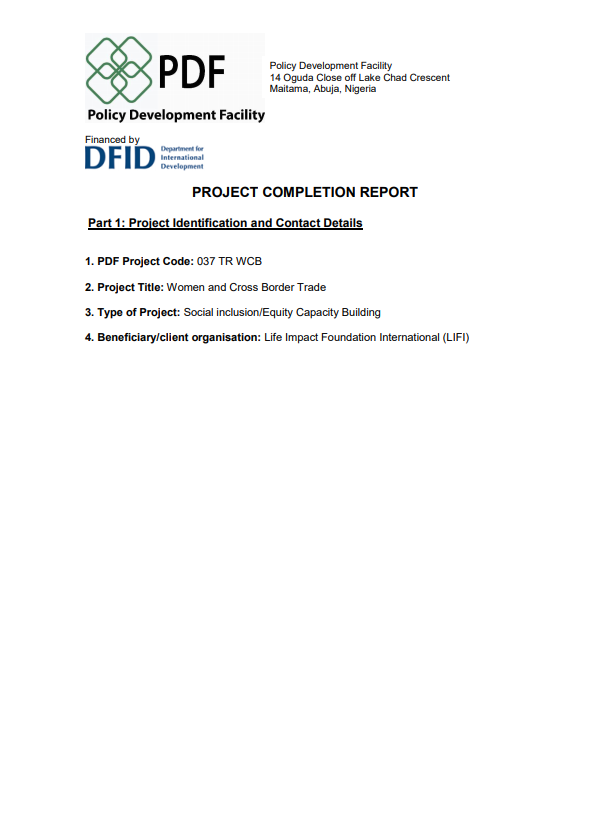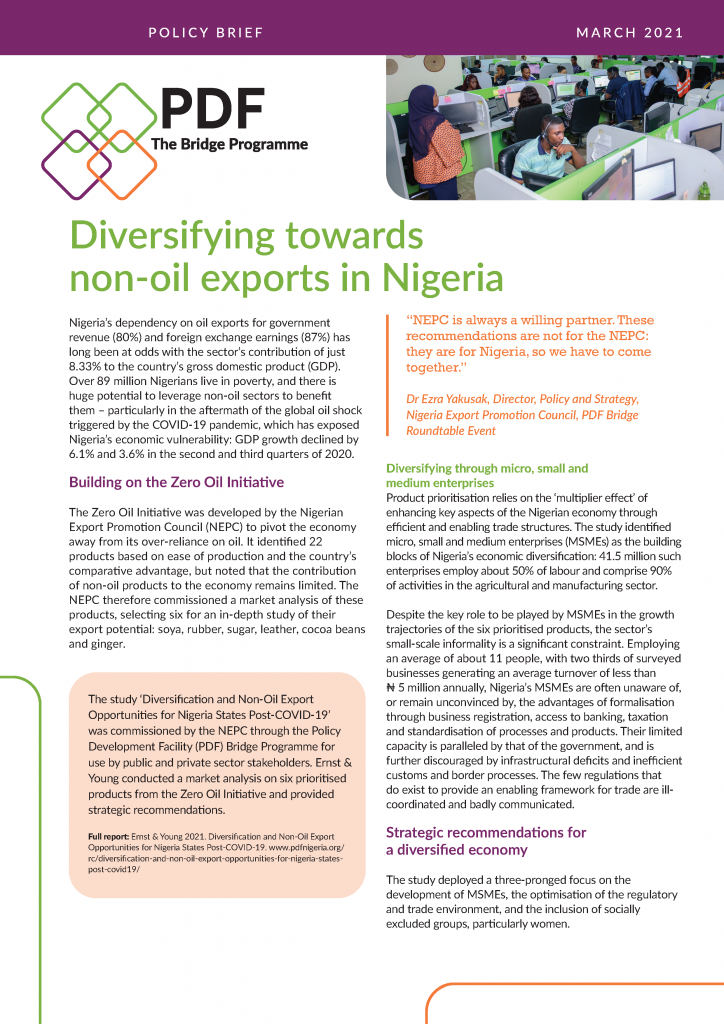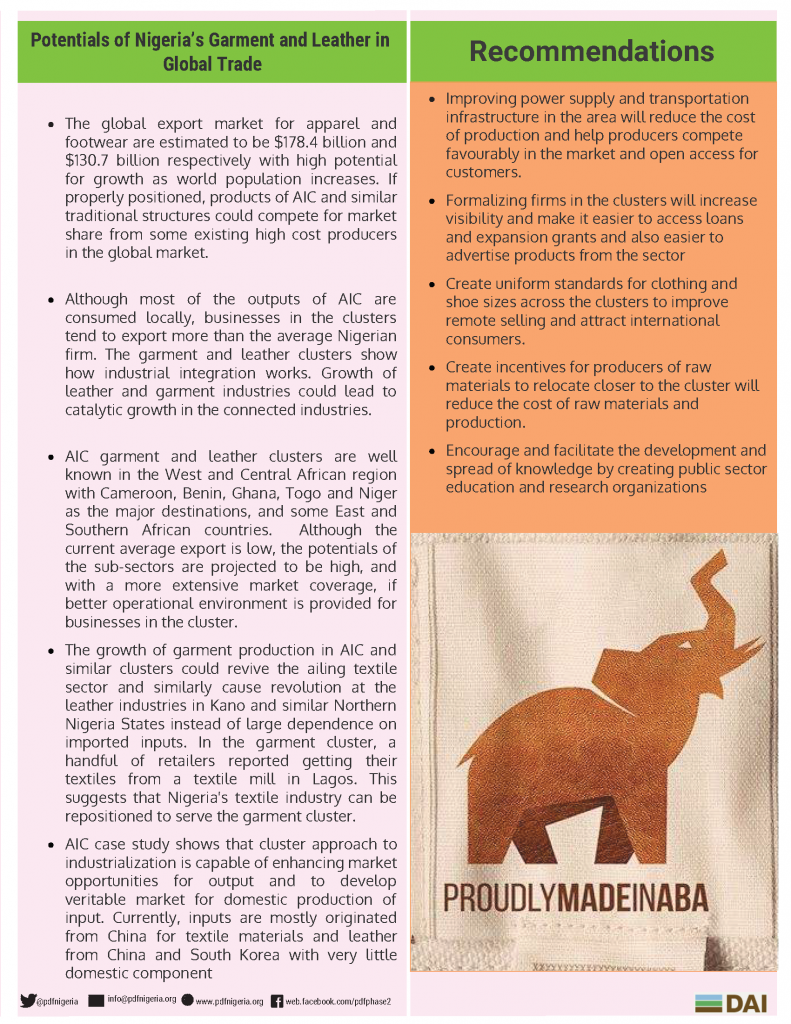Nigeria’s services sector has emerged as the highest contributor to the national output in the last decade and offers great potential to drive the diversification agenda of the government which has predominantly concentrated on agriculture and manufacturing. Services now contribute the highest proportion of the overall domestic activities and economic growth moving from less than 30 percent of gross domestic product (GDP) in the 1990s to 50.79 percent of the GDP in 2010 and 53 percent in 2019. Nigerian services economy is among the fastest growing in the African continent, recording double-digit growth rates between 2009 and 2012.
This Roundtable, put together by the PDF Bridge Programme, featured representatives from the Network of Practicing Non-Oil Exporters of Nigeria (NPNEN), the Nigerian Export Promotion Council (NEPC), private sector companies, and individuals interested in export to discuss the findings from the Services Export study and the best approach to utilize the output from the study to support diversification efforts of the Government of Nigeria (GoN).
Panellists include Mr. Francis Anatogu, Executive Secretary, National Action Committee on AfCFTA and Senior Special Assistant to the President on Public Matters; Barrister Nkiru Joy, President/ National Coordinator at Nigerian Network of Women Exporters of Services; Dr. Madu Obiora, President, Association of Outsourcing Professionals of Nigeria (AOPN); Barrister Legborsi Nwiabu, Trade Lawyer and Private Sector Specialist, Executive Director Nigeria Private Sector Alliance (NiPSA) and Mr. Abubakar .G. Shu’aibu, Assistant Director, Services, Nigerian Export Promotion Council (NEPC).
At the Roundtable, it was noted that among business owners and exporters, there is little understanding of what services export entails. Many businesses engage in service exports but are not aware of this. Understanding the four modes of services – Cross border trade, Consumption abroad, Commercial presence and Presence of natural persons – is important for business growth. To achieve this, stakeholders including the NEPC will need to conduct capacity building and sensitisation workshops for exporters, working with relevant business associations.
There was an extensive discussion on the available incentives for non-oil exports in Nigeria. Among the list of incentives introduced in the 1980s to support non-oil exports, only the Export Expansion Grant (EEG), which focuses on goods exports, is functional. The Roundtable however noted that existing incentives for goods exports are not adequate, while there is currently no incentive for services exports. The government was urged to prioritise the development of non-oil exports, going forward.
Analysis of the Potentials of Nigeria’s Services Sector for Economic Diversification, Employment, and Foreign Trade
Resource type: Event report
Sector: Trade and investment
Year: 2021
File type: PDF
Number of pages: 23
File size: 524KB
